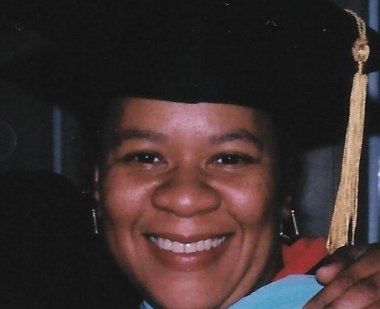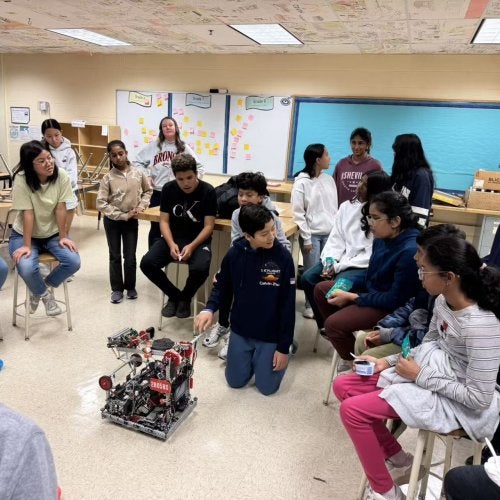A Long Legacy of African American Women Math Educators

As the College of Education celebrates its centennial, and we continue to struggle with our racial legacies, we celebrate the African American women doctorate graduates and students of mathematics education at the University of Maryland. Our graduates play important roles in national efforts in mathematics education.
“Representation matters,” said Kelly K. Ivy, a fifth-year doctoral candidate in the Center for Mathematics Education (CfME). “Having more women of color studying math education lets other women of color and other girls know that it’s attainable, it’s something they can do, it’s an option.”
Ivy, a St. Louis native, is currently working on her dissertation proposal while raising a 17-month-old son. Throughout her studies, she has concentrated on blending math instruction with culturally responsive teaching, an ongoing interest of many CfME faculty, alumni, and current students.
“You can teach math without context, but if you can find a way to develop it within the students’ culture, they are more likely to want to study it,” said Dr. Martin Johnson, professor emeritus, and former director of CfME. “Many of us believe that math should be relevant.”
Beyond her dissertation, Ivy’s long-term goal is to create a professional development center for in-service teachers that would provide culturally responsive training and workshops. In pursuing her studies, one mentor has been Dr. Mary Johnson, the second woman of color to receive a doctorate in math education at the University of Maryland, graduating in 1978.
The first Black woman to receive a doctorate from CfME was Dr. Genevieve Knight in 1970. Dr. Knight is one of the cofounders of the Benjamin Banneker Association, a national nonprofit organization dedicated to mathematics education advocacy and supporting teachers in “leveling the playing field for mathematics learning of the highest quality for African American students.”
Dr. Dorothy Y. White, a CfME grad who received her Ph.D. almost 30 years later in 1997 recalls overcoming barriers to mathematical access during her undergraduate years in the early ’80s. As a student at Morgan State University, a historically Black university, she took two classes at Towson University, a Predominantly White Institution. She was the only person of color in her linear algebra class, and wasn’t allowed to be an active participant, she said. “I learned, wow, this is a thing, a teacher can systematically deny students access to math education.”
Today, Dr. White is the first and only tenured Black female math educator at the University of Georgia. There are many universities where that number is zero, she points out. “There are a whole lot of experiences we lose out on it if we’re not at the table,” she said. “Diverse perspectives are important to have as we build math education for our kids.”
COE and CfME recently welcomed its 20th Black female doctoral student in mathematics education, Francesca Henderson of San Diego. Henderson plans to study racialization in mathematics, focusing specifically on Black girls and young women, while looking at how a student’s racial and ethnic identity impacts how the student learns, how the teacher teaches the student, and how the student navigates school.
“Your ethnicity, for many people, is going to be the first thing that people see. And with that comes a set of implicit biases. So that is going to have an impact on how you navigate your educational experience. If we want things to change, we need to diversify who’s in the room and who’s in this space,” she said. “There’s this seemingly intentionality of leaving us out. And when I say us, I mean black women, I mean black people, I mean a lot of people of color and it’s just really time to change that because we need a seat at the table. We have a valuable voice.”


